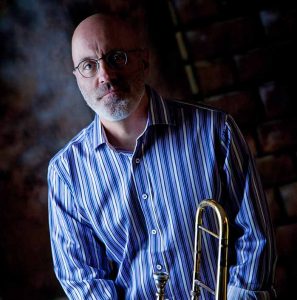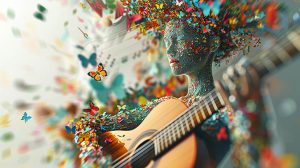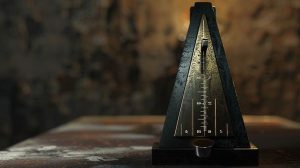
Should you know the chord changes?
I’ve always believed that the best way to gain skill as a musician is to develop one’s ear and its connection to the instrument. That belief led to the creation
Categories:
Categories:
I’ve always believed that the best way to gain skill as a musician is to develop one’s ear and its connection to the instrument. That belief led to the creation of tools and exercises that encourage musicians to prioritize ears over eyes. So for these tools, I’ve always asked myself, should you know the chord changes?
Continuing that tradition, my latest product is called Groovz Playground, a series of one, two, three, and four chord loops over which one improvises. I did something different, however, with Groovz Playground. I provided chords, scales, and other help for the eyes and left (analytical) brain to make playing over the tracks easier.
I’m not sure “easy” is the right word, but I know that many players just want to see those visual elements rather than depend solely on their ears. And if I’m going to claim that Groovz Playground is fun to use, many would argue that not being to ponder the chords or scales makes it NOT fun.
Groovz Playground is still new so the jury is out as to the consensus of both the enjoyment and utility of it for musicians trying to build their skills. But I discovered something interesting that I’d like to share from recording the short improvisations for each loop serving as examples.
While recording the short improvisations over the Groovz Playground loops, I purposefully chose NOT to look at the chords or keys for any of them, opting instead to simply jump in, hit ‘record’, find the harmony with my trombone, and improvise something.
After creating over 25 of these original loops throughout the past couple of months (and a few of them years ago), my memory is certainly not good enough to remember the various chords for each, so I was truly diving in and exploring the harmonies in real time. I purposefully scattered the keys throughout Groovz Playground from four flats to four sharps and beyond.
I know myself well enough and have experienced thousands of my performances and recordings to be aware that if I focus on the chords and keys, the authenticity of my improvising suffers. The listener isn’t aware, but I will become attracted to certain chord tones and the muscle memory reflecting phrases and licks of the past if I know the chord changes. That is the type of ‘improvisation’ I personally want to avoid.
Additionally, when I finished a minute or so of recording over a loop, I’m still not thinking of the chords or keys. For better or worse, I went into these recordings with the goal of exploration rather than the aim showing off slick polished melodies.
Groovz Playground was a break in tradition with most of my other books and courses. My other ear-based training provides only the minimum guidance in terms of the chords, scales, keys, etc. My thinking was, if you are going to exercise your ear, why would I want to bypass that with visual and left brain (analytical) shortcuts?
But Groovz Playground provides the chords, keys, common tones, and written out phrases that sound good played over each loop. Why? Because I fear that for the novice player or less skilled improviser, throwing them into the water without a life preserver within reach may help them less. That’s not fun, and without this being fun, you will quit and move on to something else.
That’s my assumption, but I would love to learn more from you if you wish to explore Groovz Playground. To do that, click here to learn a bit more and to sign up for free full access.

Trombonist, author, marketer, & tech guy
Share this post…

I’ve always believed that the best way to gain skill as a musician is to develop one’s ear and its connection to the instrument. That belief led to the creation

I recently watched a video performance by the amazing classical pianist Yuja Chang. I’ve seen her memorizing motion and heard her virtuosic playing before, but something hit me after seeing

I have created a AI chatbot called Jazz Master Chat that draws from 75 hours of interviews from my Jazz Master Summit event a couple of years ago. I interviewed

My recently turned 18-year old son is a passionate photographer. He’s got himself a little business where people pay

A couple weeks ago I sent Richie Beirach a YouTube clip from the movie Whiplash as a bit of

I originally meant to write this as a reply to a comment Richie Beirach wrote on my blog. But

Tools for helping musicians at all levels learn about jazz and play to their full capability.
Web design and marketing by:
Michael Lake @JazzDigitalMarketing.com
This is just a fake book example for the type of website I can build for you. Just trying to use a little humor here!